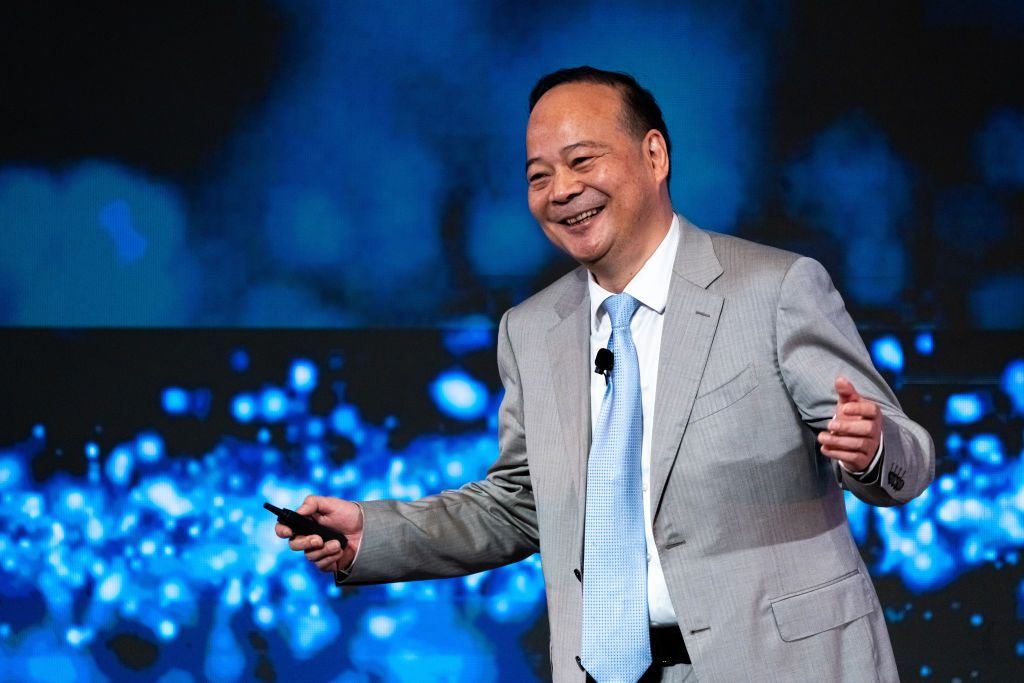Whatever else happens this year, Robin Zeng can claim one pivotal moment. In May, he took the contrarian bet of pushing ahead with a secondary listing of CATL in Hong Kong. It proved transformative, says the Financial Times. Shares in the company, a pioneer in batteries for electric vehicles (EVs), surged, lifting its market value to roughly $166 billion in the world’s biggest IPO of the year.
The float jump-started the wider market out of its post-Liberation Day slump, with the Hang Seng index now up 30% in the year to date. Leading the rally in confidence, amid new optimism about a trade détente between the two superpowers, is China’s battery king – now a Hong Kong citizen and vying with business magnate Li Ka-shing for the title of Hong Kong’s richest person, with a net worth of some $40 billion.
Not that he apparently cares, says The Wall Street Journal. Zeng might have built CATL into a global juggernaut – its batteries were installed in one in three EVs globally last year – but he represents a new kind of tycoon flourishing in Xi Jinping’s China: understated, philanthropic and ready to echo official state talking points. “I don’t want to be the rich guy,” he observed on the eve of the float. “I want to share these riches to create a good society.”
Subscribe to MoneyWeek
Subscribe to MoneyWeek today and get your first six magazine issues absolutely FREE
Get 6 issues free
Sign up to Money Morning
Don’t miss the latest investment and personal finances news, market analysis, plus money-saving tips with our free twice-daily newsletter
Don’t miss the latest investment and personal finances news, market analysis, plus money-saving tips with our free twice-daily newsletter
Zeng, 57, emerged during a turbulent period for tech executives and has learned the lessons – leveraging his know-how “and the state’s willingness to throw money at the renewable energy and EV industries” while keeping his head down. He toes the line on Xi’s vision for China, “where ostentatious displays of wealth aren’t tolerated and humility is the sentiment of the day”. His draws inspiration from the early Chinese sage Confucius, with his “lifelong learning and continuous moral improvement”.
How Robin Zeng made his money
Born in 1968 as Zeng Yuqun, he grew up in poverty in a mountain village in the southeastern province of Fujian – near Ningde, where CATL is now based. “A strong student with big ambitions”, Zeng won a place at the prestigious Shanghai Jiaotong University. He quit his first job at a state-owned enterprise in Fujian after just three months and moved to Dongguan to join an electronics manufacturer, studying part-time for a PhD in physics at the Chinese Academy of Sciences. In 1999, he started his own company, Amperex Technology (ATL), producing lithium-ion batteries. Apple was an early customer. Zeng realised his first fortune in 2005, when he sold ATL to Japan’s TDK for $100 million, says The Wall Street Journal. But he “stuck around”, setting up a car-battery division. TDK was banned from the Chinese market because it was a foreign company, so Zeng started CATL in 2011.
“The timing was perfect” – Beijing had begun prioritising EVs and was offering generous subsidies. As with ATL, Zeng built the firm’s reputation on a contract with a blue-chip Western brand, BMW. A big boost came in 2015 when Beijing told global automakers they would only qualify for subsidies if they used batteries from approved Chinese suppliers, including CATL. Within a year, revenues rose from $1.2 billion to $9 billion.
Zeng sees himself as much more than a battery-maker, says the FT. His ambition for CATL is to become “the pioneer” of the broader zero-carbon economy. He’s particularly interested in lowering the energy costs of vertical farming, telling Bloomberg that “if you solve agriculture, then you’ve solved everything”. Yet CATL remains at the mercy of politics. In January, the US added the firm to a blacklist of companies with alleged links to the Chinese military (a claim denied by CATL). That threat might have receded, but it hasn’t gone away. Moreover, entrepreneurs like Zeng are at the whim of Xi, says Desmond Shum, the Hong Kong businessman who wrote Red Roulette. “If you don’t understand this, you’ll be the first one slaughtered.”
This article was first published in MoneyWeek’s magazine. Enjoy exclusive early access to news, opinion and analysis from our team of financial experts with a MoneyWeek subscription.
